Not better, not worse, just different
Written by Steph Coombes, Central Station editor.
They say, “comparison is the thief of joy”. Nothing good comes from comparing your life to others; even when you find a situation where you come out on top, you’ll inevitably be able to find another one where you come in second best.
Even though I’m here writing this, sounding super wise, comparing myself to others is something I continue to struggle with. Life/age status (“by age X, I should be doing Y, and I should have Z”), physical fitness, finances, job title, social media following – you name it, and you can compare it. But this is Central Station, so rather than talk about the daily frustrations of seeing ridiculously attractive Instagram girls pop up in my newsfeed uninvited, I want to talk about how comparison can affect our experiences in the northern beef industry.
I’m a born and bred city girl. When I did my first stint on a station, I had none of the basic skills that you’re expected to have. I’m not kidding – I’d never even driven a manual car. So, you can imagine how I felt when we had to unload all the mustering buggies off the back of the truck and I was asked to take one over to the workshop… I’d never worked cattle, never done a pre-start check on a vehicle, driven any sort of machinery (does a quad bike count?) or even used a two-way radio. I was on the back foot in every situation – even figuring out how to tie off the wire after fixing a fence without it looking like a hot mess. While being on the station was the most amazing experience, I’d also never felt so inadequate and stupid. I’ll never forget a conversation I had toward the end of muster with one of the owners. I’d mentioned that I’d had such a good time, maybe I’d like to be a station manager one day. The response was that that was very unlikely to ever occur, because I had no skills – I couldn’t even weld.
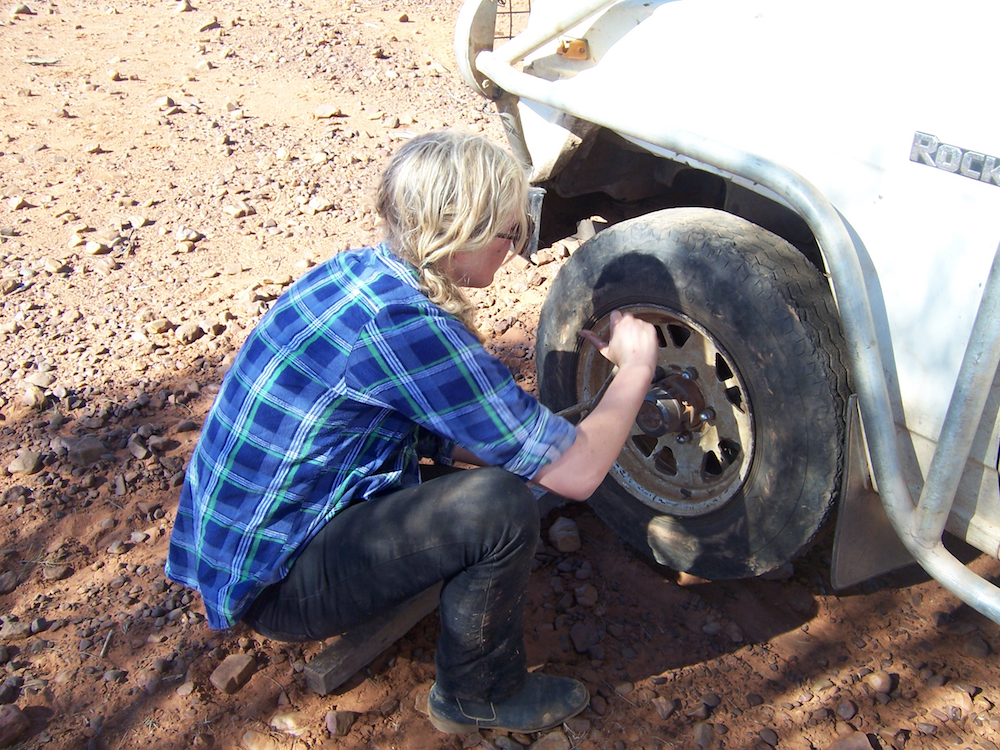 The infamous photo of me changing my first tyre on the second day of muster. I was so excited to have my first flat, I got the only other girl on the crew to take this photo. I ended up forgetting to re-tighten the wheel nuts after letting the jack down, and about 30 minutes later the wheel fell off and rolled across a flat as I went to chase a beast that had broken from the mob. Good times.
The infamous photo of me changing my first tyre on the second day of muster. I was so excited to have my first flat, I got the only other girl on the crew to take this photo. I ended up forgetting to re-tighten the wheel nuts after letting the jack down, and about 30 minutes later the wheel fell off and rolled across a flat as I went to chase a beast that had broken from the mob. Good times.
So, I left the station downhearted but determined. Before returning the next year, I got my MR (medium rigid) truck licence (all I was eligible for on P plates) and I did a welding night course. Of course, I wasn’t allowed anywhere near any of the machinery, including the welding machine, that next year. The year after that, I took a semester off university and completed a Certificate II in Agriculture at the Charles Darwin University Katherine Rural Campus where I learnt how to: shoe a horse; service a motor car and a quad bike; weld; brand, castrate and dehorn cattle; drive machinery, and so much more – I even got my Heavy Combination (HC) licence! I felt like I was finally catching up to everyone else.
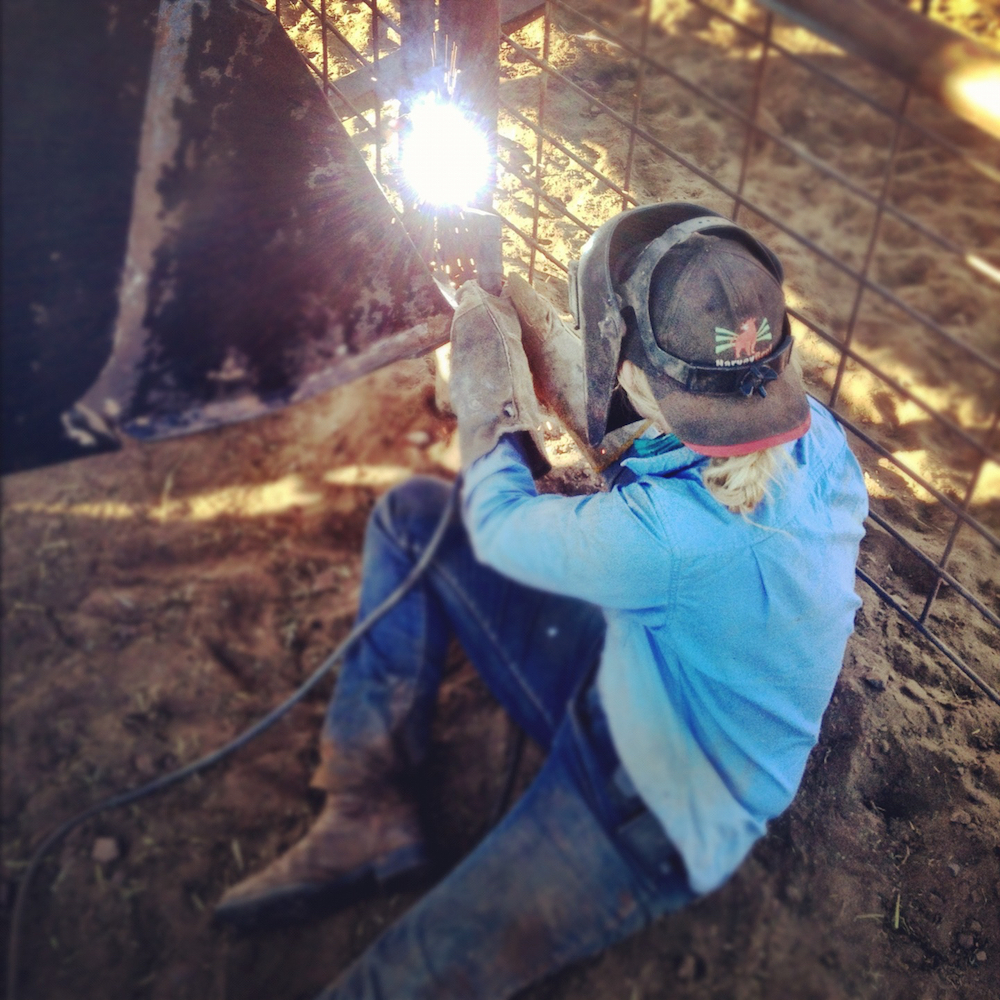 I had to wait until my 3rd year on that station before they would let me weld anything.
I had to wait until my 3rd year on that station before they would let me weld anything.
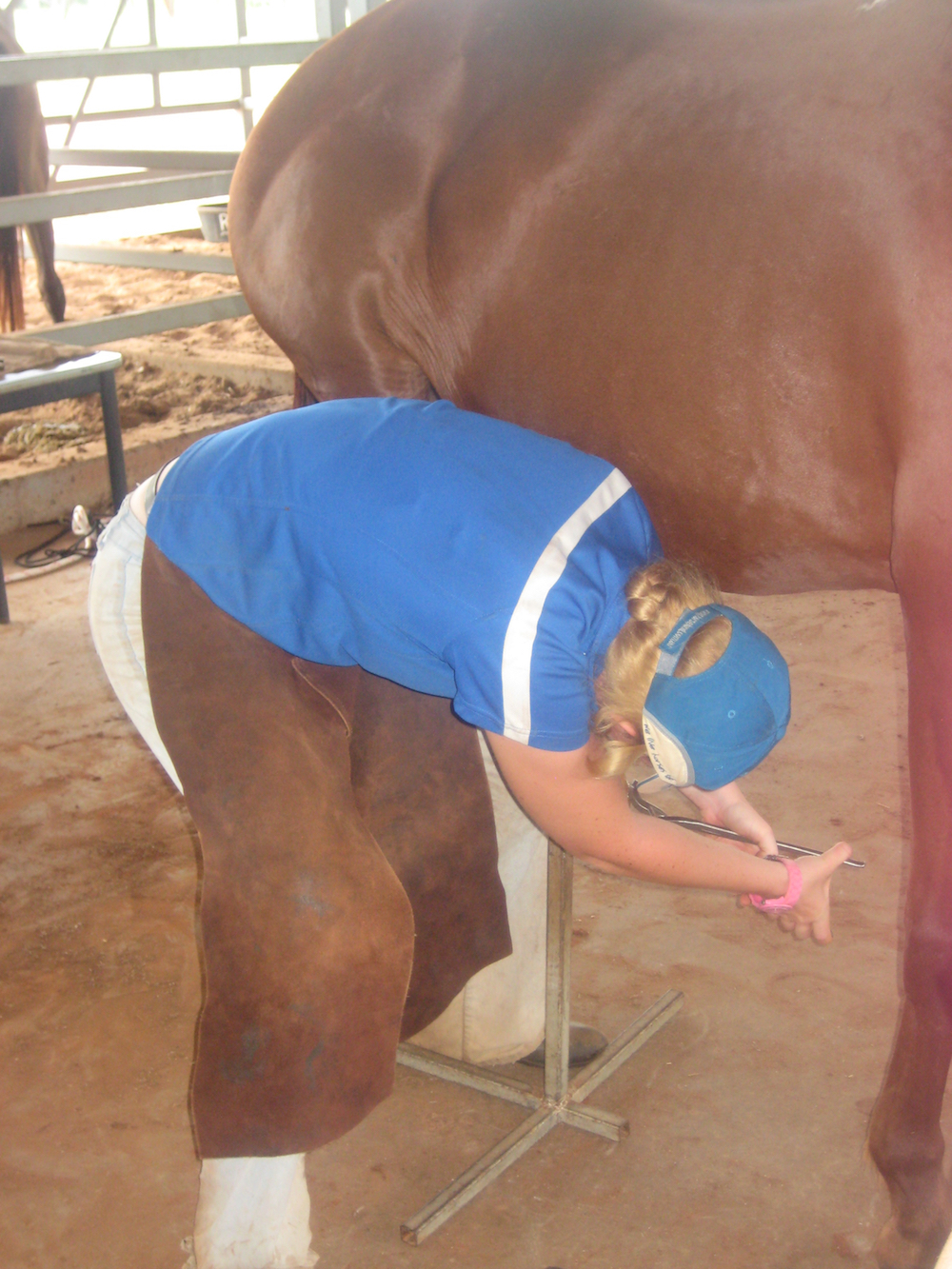 Learning how to shoe a horse at the Katherine Rural Campus.
Learning how to shoe a horse at the Katherine Rural Campus.
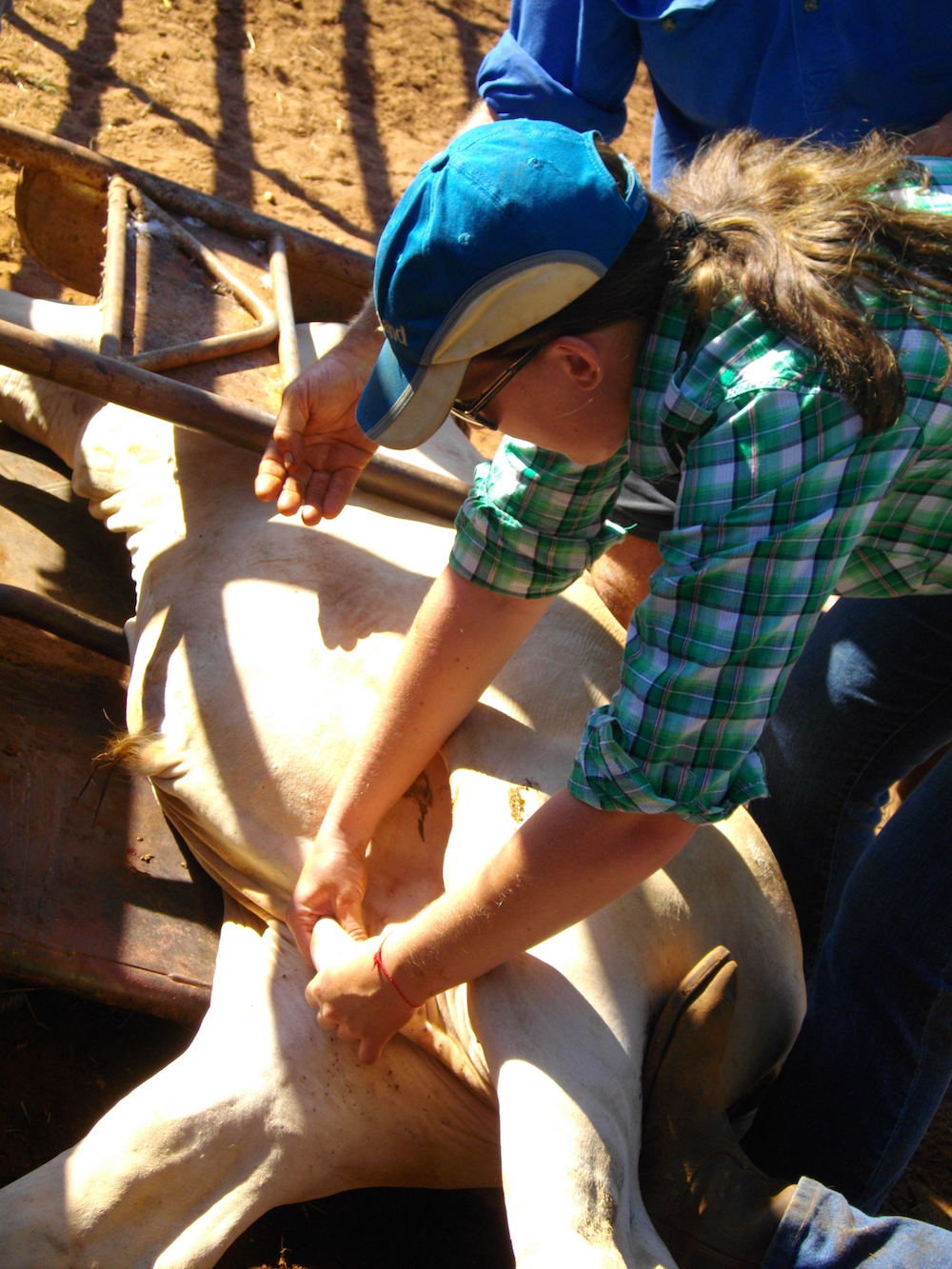 Learning how to castrate at the Katherine Research Farm.
Learning how to castrate at the Katherine Research Farm.
The next time I went to work on a station was when I was fresh out of a 5-year Agricultural Science degree. I was super excited, because I’d been tasked with the job of setting up some spreadsheets for records and data collection – in addition to regular station duties I was going to be able to use my degree too! This made me feel a little better, because while I’m half-handy on a muster or in the yards, I wasn’t so handy with all the other station duties. If you set up the welder, and then hand it to me, sure, I can weld ok – but if you ask me to figure out which type of ARC rod thing to use (see I don’t even know its name) and what to set the amps to … eh? And unless you want really big and slow circles, don’t bother putting me on a motorbike.
However, I ended up leaving the station before the season was over, for a couple of different reasons. One was that I’d been offered an incredible opportunity elsewhere in the agricultural industry, and the other was that my feelings of inadequacy in the crew were suffocating me – it wasn’t a hard choice to make. Upon leaving, I was told by the manager that I was the weakest link in the team. In amongst being absolutely mortified, with time I became kind of angry. Yes, I was the weakest link when it came to servicing vehicles and riding motorbikes and all sorts of other station jobs – but I was the only one who was expected to do any of the data analysis and have academic-type skills. While everyone else was only expected to be good at labour-type station jobs, I felt I had to be equally good in at two very different skill sets.
It’s taken me a long time to acknowledge and accept my strengths and weaknesses. No matter how much time I spend on a station, I’m always going to be stronger at setting up some sort of trial, than sighting in a new fence or servicing a bore (or even starting one with a crank handle – which I can do, but I look ridiculous doing so and I have the video to prove it!). Even more so, I’m going to be more interested in strategic planning than bashing in fence posts – that’s just what floats my boat. (Although, in saying that, I could happily tie wire onto steel posts all day). And yet, even though I can say this now, I know it’ll only be a matter of time before I slip back into the comparison cycle.
It’s been 10 years since I first stepped foot on a station. I’m a lot more handy than I was back then, but I’m nowhere near as handy as I would be if I’d spent all of the past decade on stations – but that is a direct consequence of my choices, and I accept that. Instead of staying on stations, I’ve got 2 degrees, moved overseas twice, taught myself how to design websites, and photograph at a professional level, among a myriad of other things. I’ve gone back and forth between working on the land to office jobs – in my final year of living overseas, I went from doing marketing for a cattle ranch, to being a ranch hand where I basically lived on a horse, and then back to an office job working for an agricultural communications agency. Throughout university I worked in retail and hospitality so I know my way around a coffee machine, and hell, I’m a qualified bra fitter (yep, that’s a thing!).
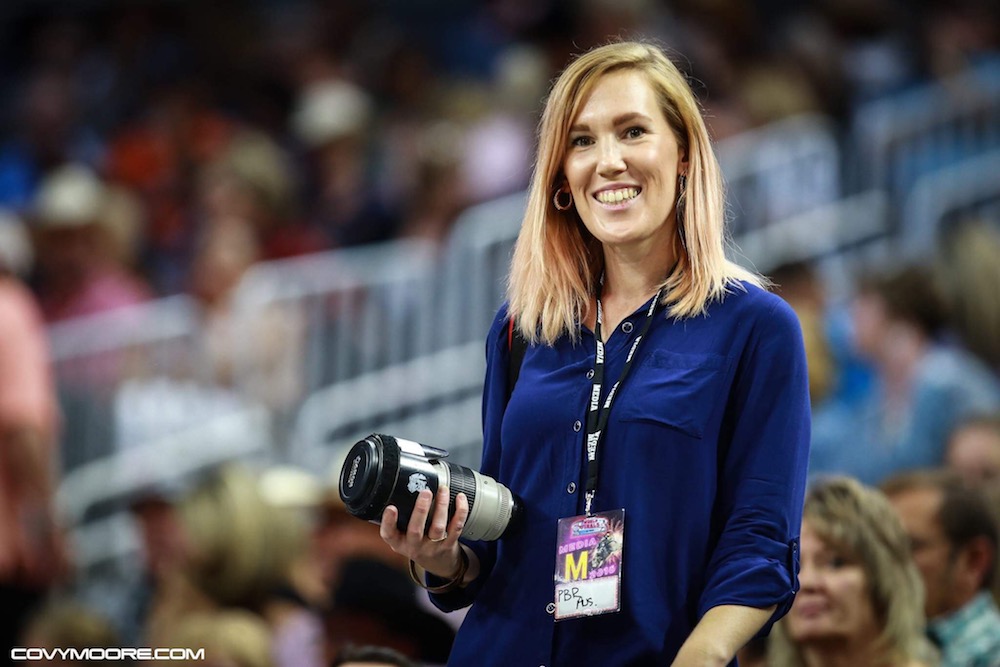 Just walking about the 2016 PBR World Finals in Las Vegas looking important holding a camera lens.
Just walking about the 2016 PBR World Finals in Las Vegas looking important holding a camera lens.
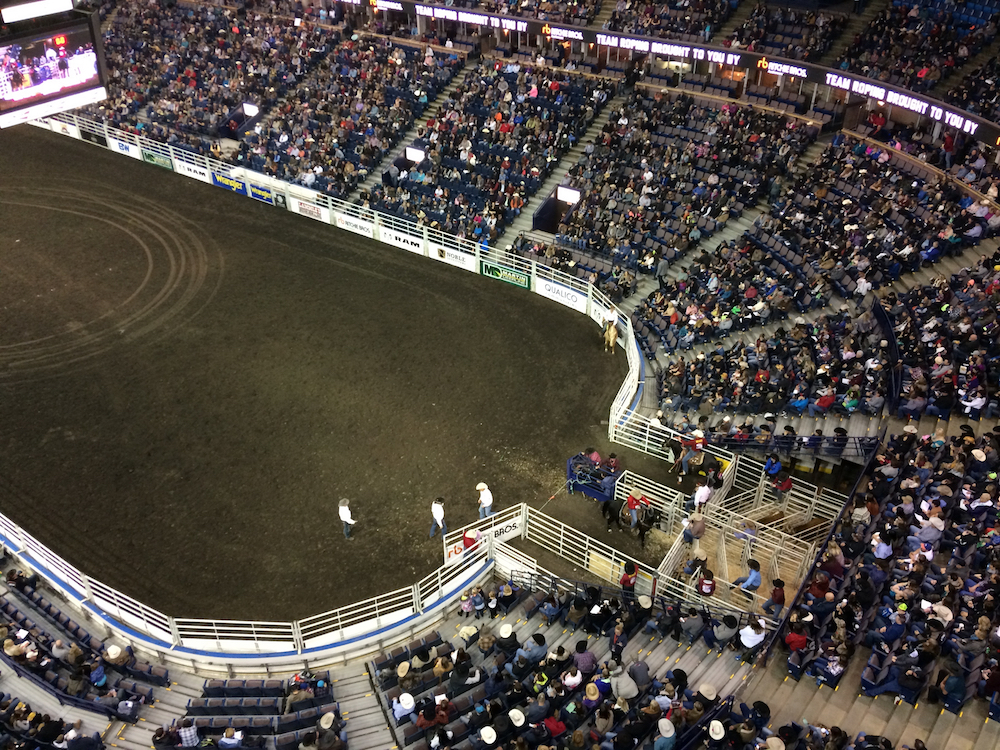 My view from the 2017 Canadian Finals Rodeo – it’s a 5 day event and I wanted to capture it from as many different perspectives as possible.
My view from the 2017 Canadian Finals Rodeo – it’s a 5 day event and I wanted to capture it from as many different perspectives as possible.
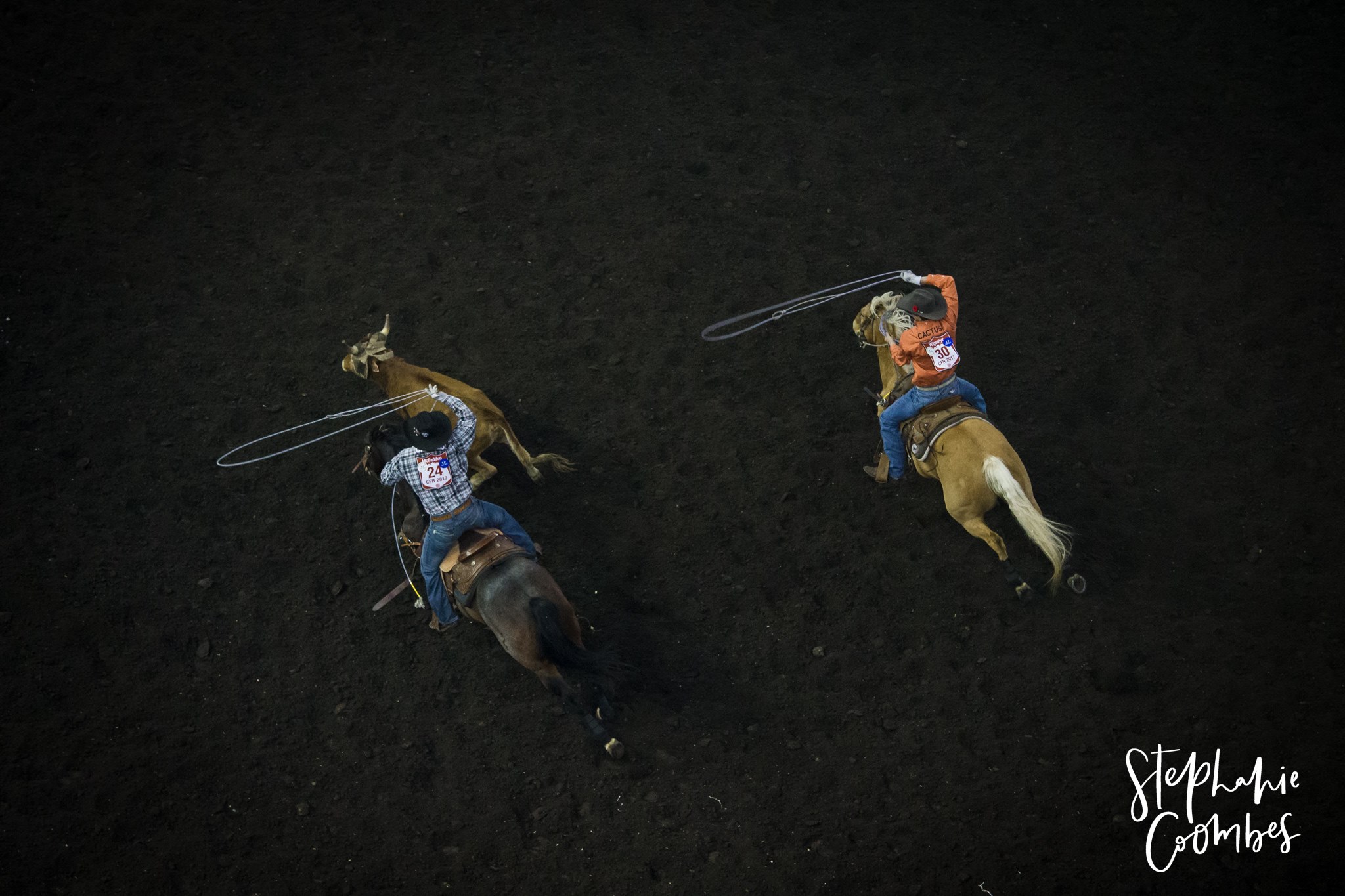 One of my favorite photos of all time – magic happens when you push the boundaries and try something different.
One of my favorite photos of all time – magic happens when you push the boundaries and try something different.
I’ve had so many different experiences and as a result I’ve developed a wide range of skills (I’m still waiting for the right time to use what I learnt in my Family & Marriage Therapy class … I feel like it’ll come in handy during a yard up). I know I have so many things to be proud of, but yet I still feel about *this big* (just visualize something really small) when there’s some sort of practical skill I can’t do, especially basic things like figuring out what kind of knot to use when tying stuff on a trailer (I swear if I don’t use a ratchet strap for 6 months then I have to figure out how to thread it all over again).
My first job since coming back to Australia was working for a helicopter company that does mostly mustering, but some mining jobs. So, most of the pilots are also stockmen and bloody handy blokes. While most of the time I was able to embrace being a newbie to the world of aviation and I learnt so much, there were times where I felt so stupid. I didn’t beat myself up too much when they tried to explain helicopter stuff to me and my eyes glazed over (did you know that helicopters have clutches, but it’s not like in a car, because there’s no gears to change … I think?). It was more so the times like when I needed someone to reverse the ute and trailer down a long and skinny driveway (yeah Briggsy, I’m looking at you), or when a smoke alarm needed to be put on the wall and I was standing there with the drill trying to figure out the best way to do it (i.e. if I should drill into an existing small hole or make a new one), until someone took over.
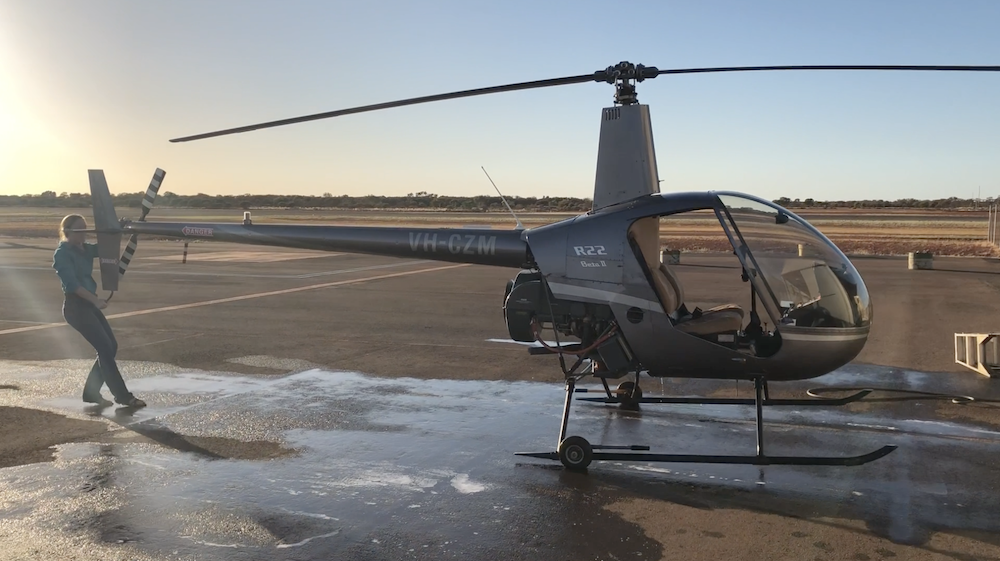 “Guys, look, I can move an R22 all on my own!” … Ok, I can move and R22 that’s have the fuel and oil dropped out of it.
“Guys, look, I can move an R22 all on my own!” … Ok, I can move and R22 that’s have the fuel and oil dropped out of it.
Looking back, when I was younger and I felt inadequate, my internal dialogue would eventually focus on what I had that the other people didn’t. I’d focus on my strengths, and their weaknesses – “Well, maybe I can’t fly a helicopter, but … but he can’t edit a picture in Photoshop … so whatever, I don’t care”. As I type this, I’m having an epiphany that this was a defence mechanism. The thing is, that sort of behaviour didn’t serve me or anyone else. Feeling like you are enough, and you are worthy, is something I know we all go through from time to time, if not more regularly. We all have different skills, and we’re all bringing different experiences to the table. It’s not a competition. We need to embrace our differences, rather than treat them like flaws.
Who you are as a person, and what you have to offer in any situation, is not better than anyone else, but it’s also not less than – it is simply different.
I think in an industry that requires people to hold such a diverse range of skills – mechanics, veterinary care, land management, infrastructure design and maintenance, people management, business management etc., – no one is going to be amazing at everything. If you let yourself get caught up on what you can’t do, or what your “weak” areas are, you’re going to miss out on so many experiences. It’s ok to continue to develop new skills, but make sure you’re giving yourself due credit for what you’ve already got to offer.
“A flower does not think to compare itself to the flower next to it. It just blooms.”
P.S. I recently headed out to Yougawalla Station to help out in the office. While I’ve never done accounting or used the MYOB software before, I managed to pick it up within a few days. However, Yougawalla is about 3 hours off the bitumen, and even though I had the most detailed mud map I’ve ever seen, on my way in I took a wrong turn and ended up on a bore run. I’d almost convinced Jane that her map was terribly outdated, until the Telstra blokes turned up the next morning, using the same map, without getting lost. So, you see – we can’t all be good at everything!
P.P.S Thanks to Haydn out at Yougawalla, I now understand why and how clutches work in helicopters!
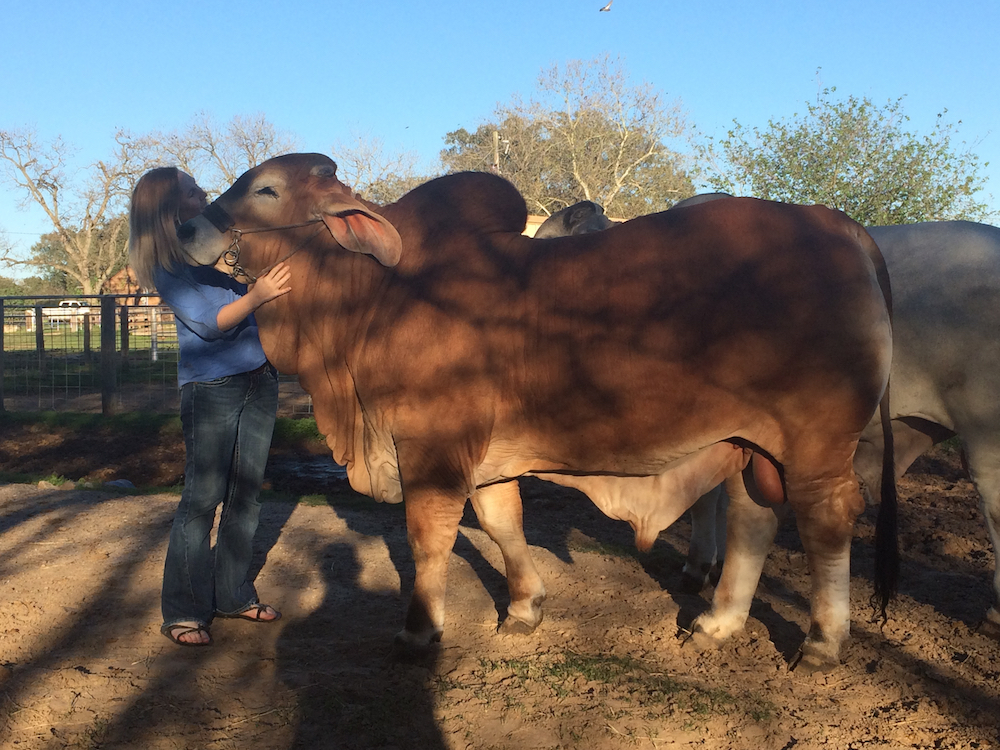 Having a moment with one of the JD Hudgins bulls in Texas. Even though I’ve become somewhat of a “Jack-of-all-trades, Master of None”, I wouldn’t trade the incredible experiences I have had around the world for anything.
Having a moment with one of the JD Hudgins bulls in Texas. Even though I’ve become somewhat of a “Jack-of-all-trades, Master of None”, I wouldn’t trade the incredible experiences I have had around the world for anything.
